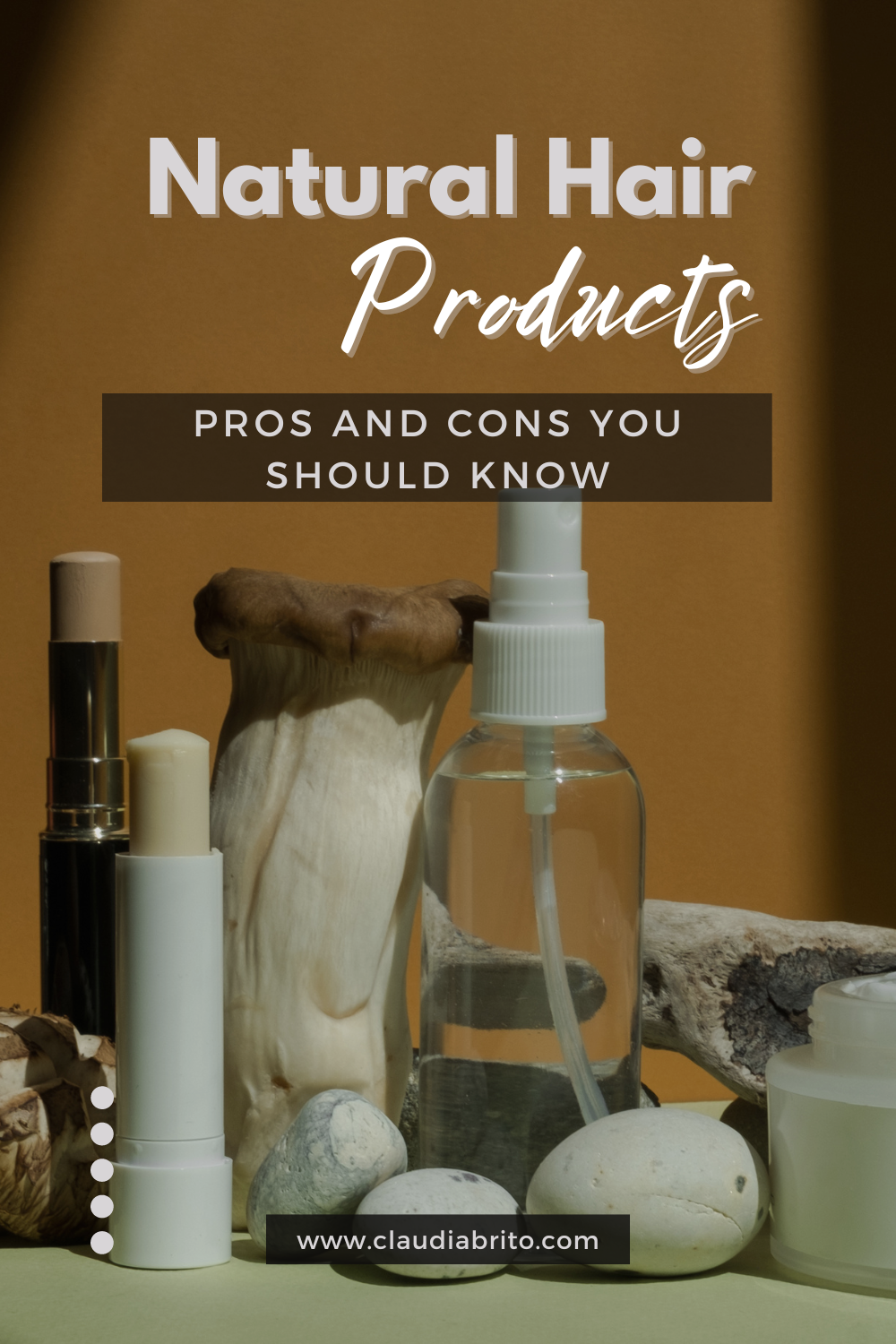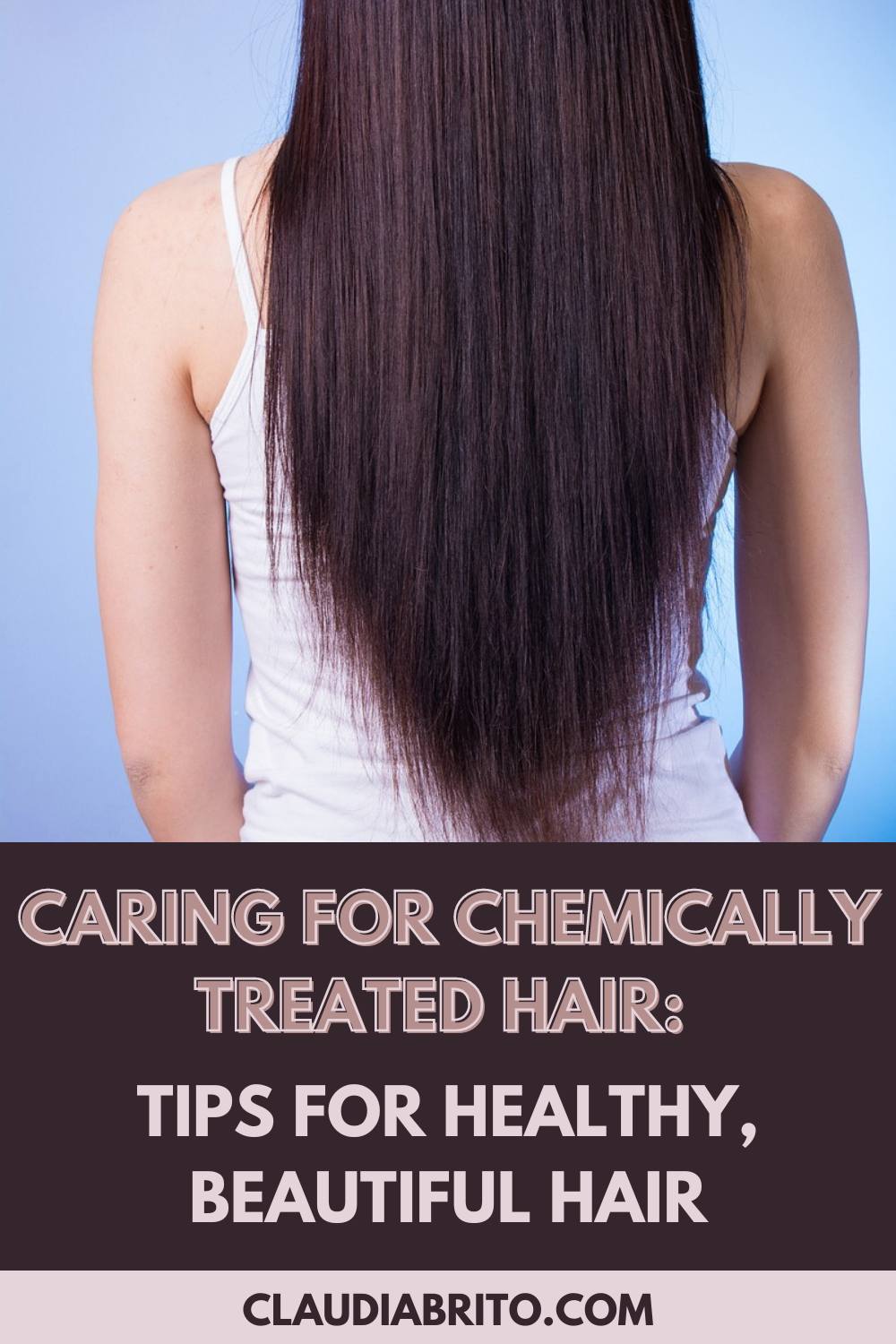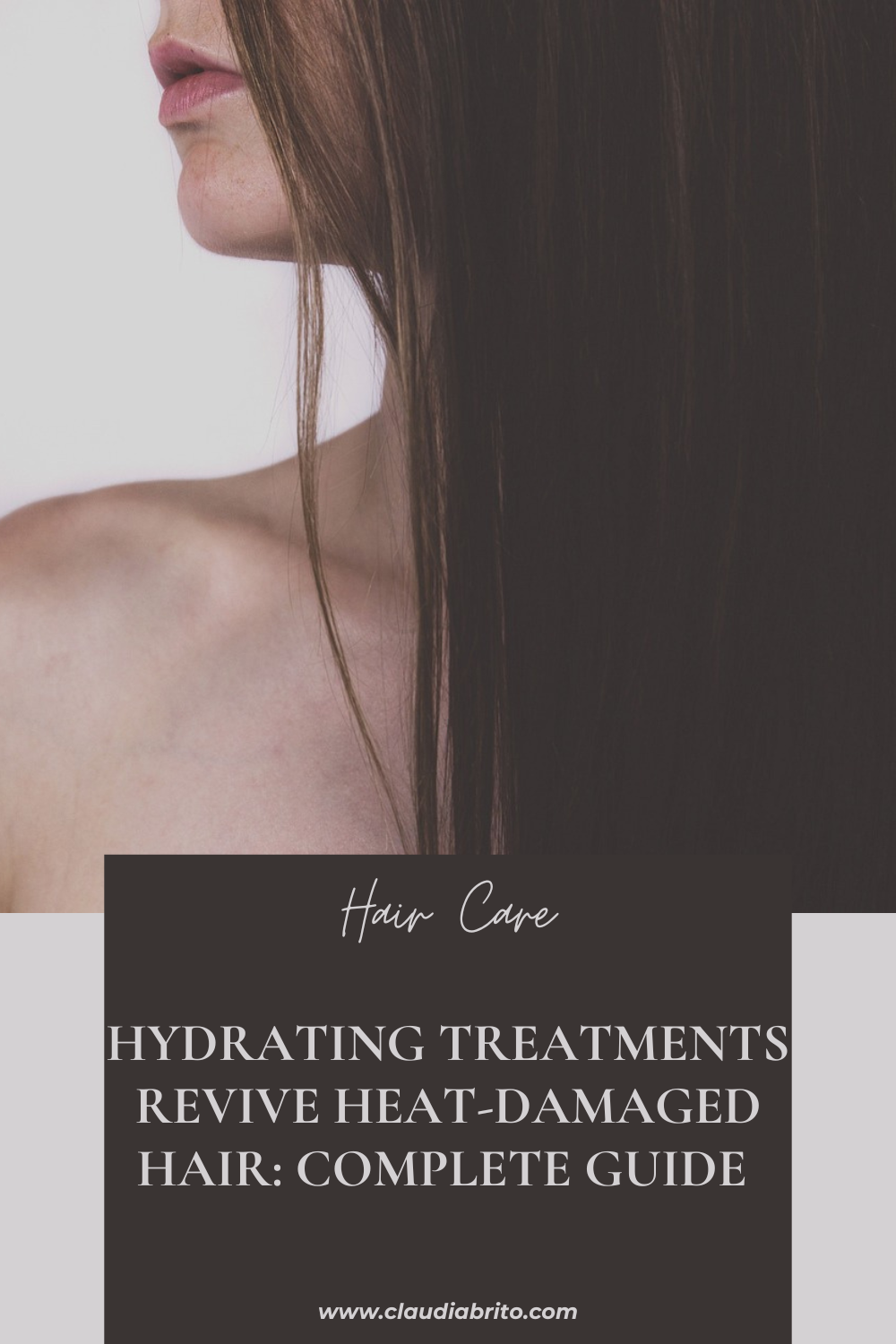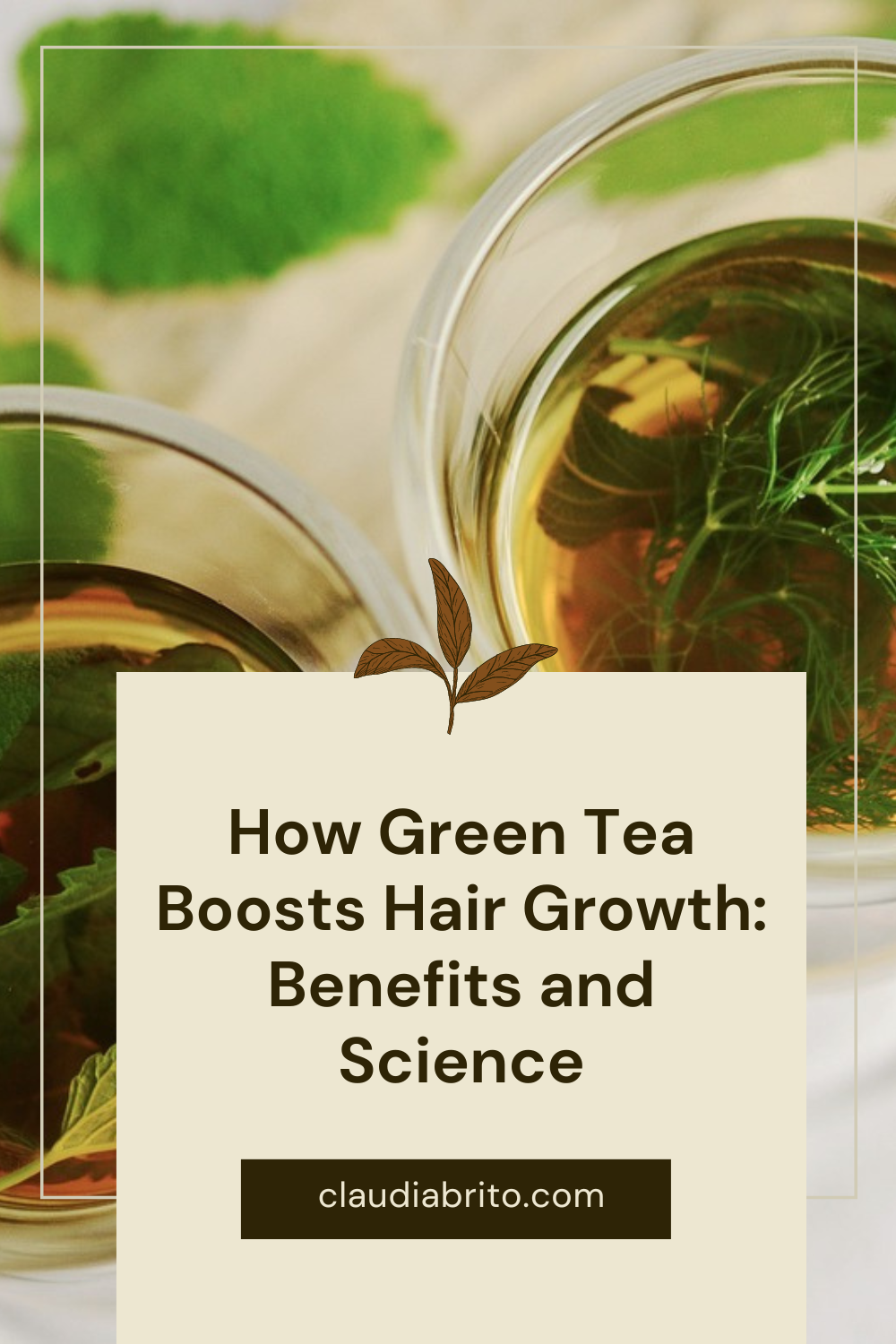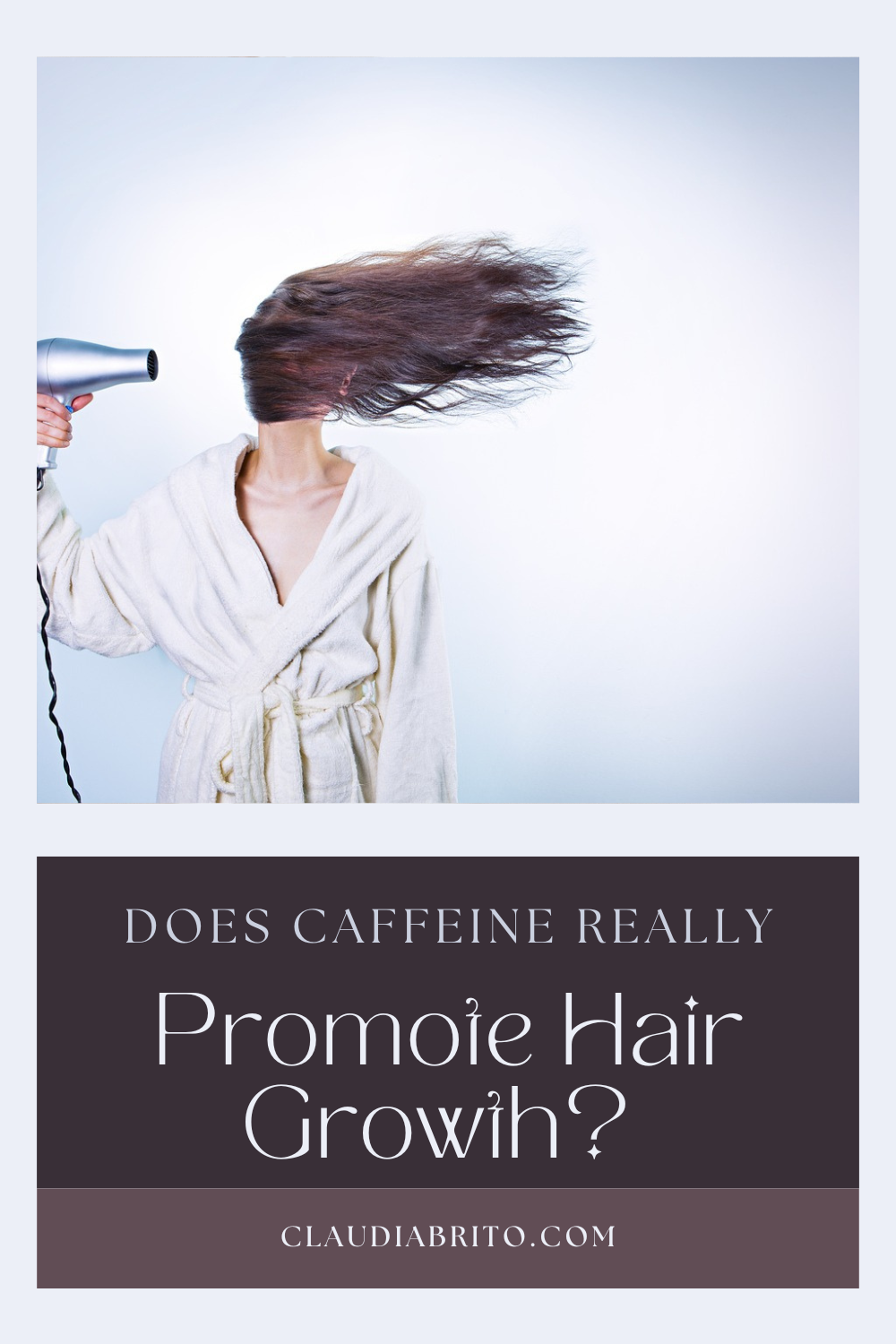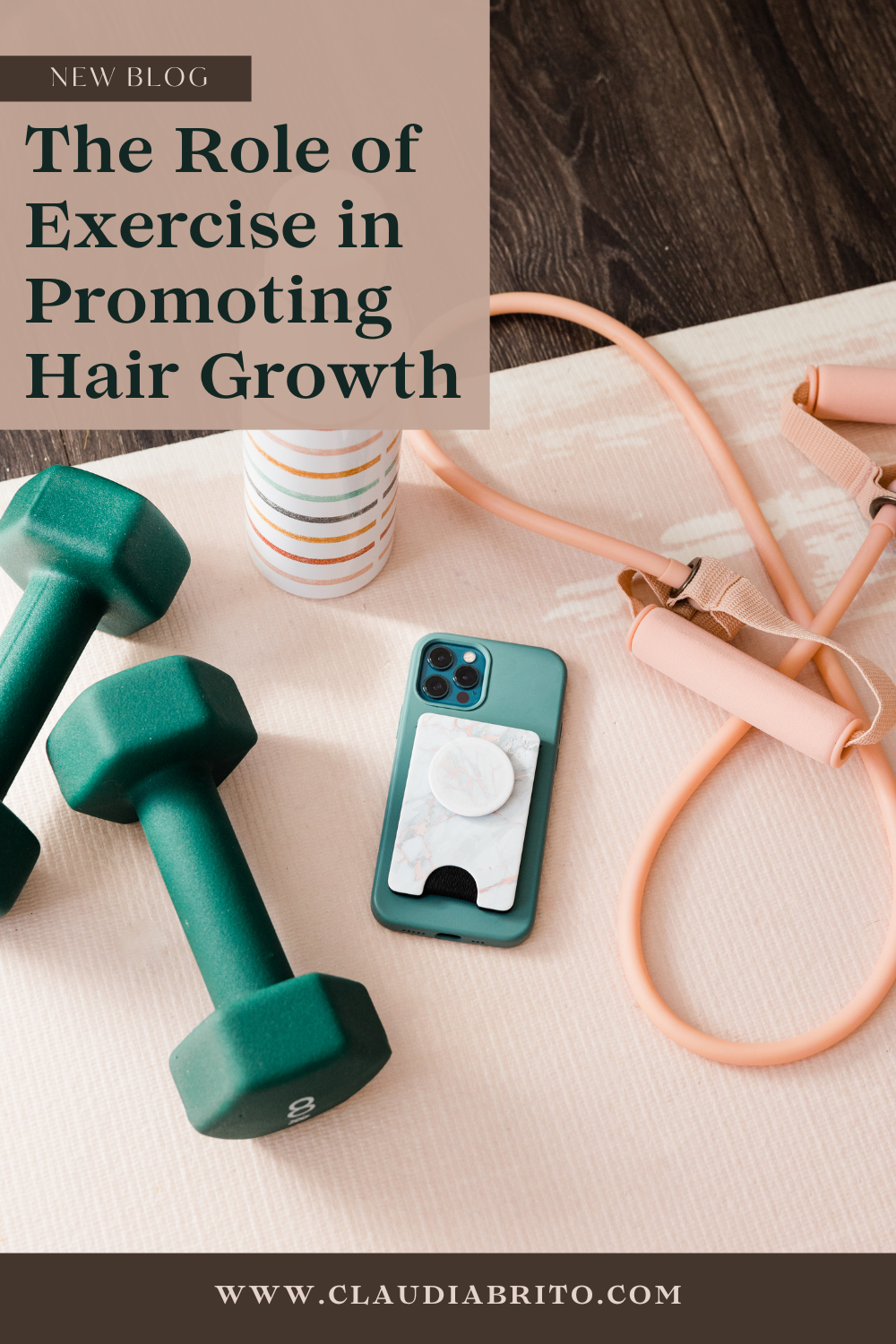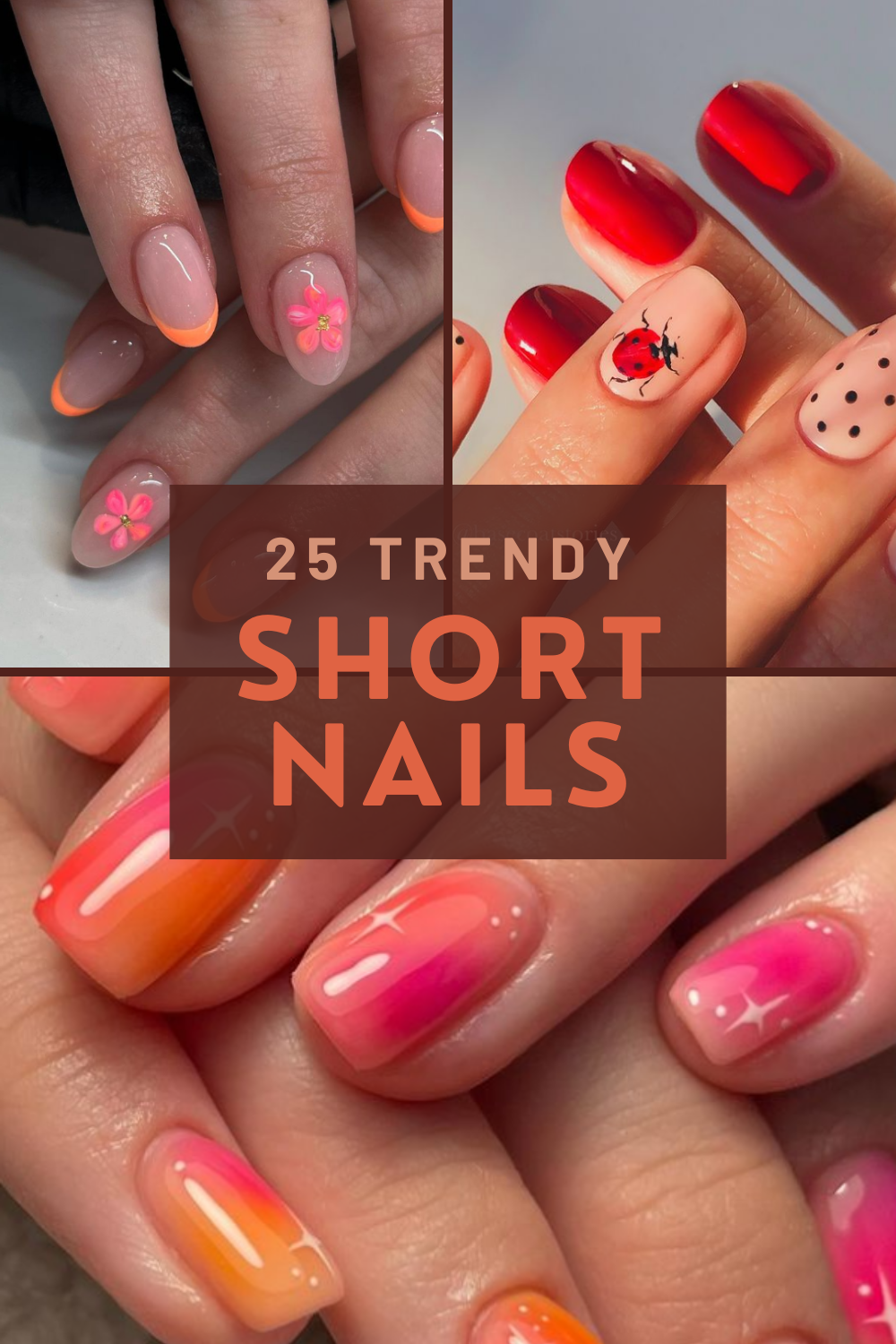In recent years, the beauty industry has seen a significant shift towards natural hair products.
This growing trend is driven by consumers becoming more conscious about what they put on their hair and how it affects their health and the environment.
But are natural hair products really better than conventional ones? In this comprehensive guide, we’ll explore the pros and cons of natural hair products, compare them with conventional options, and provide tips on how to make the switch effectively.
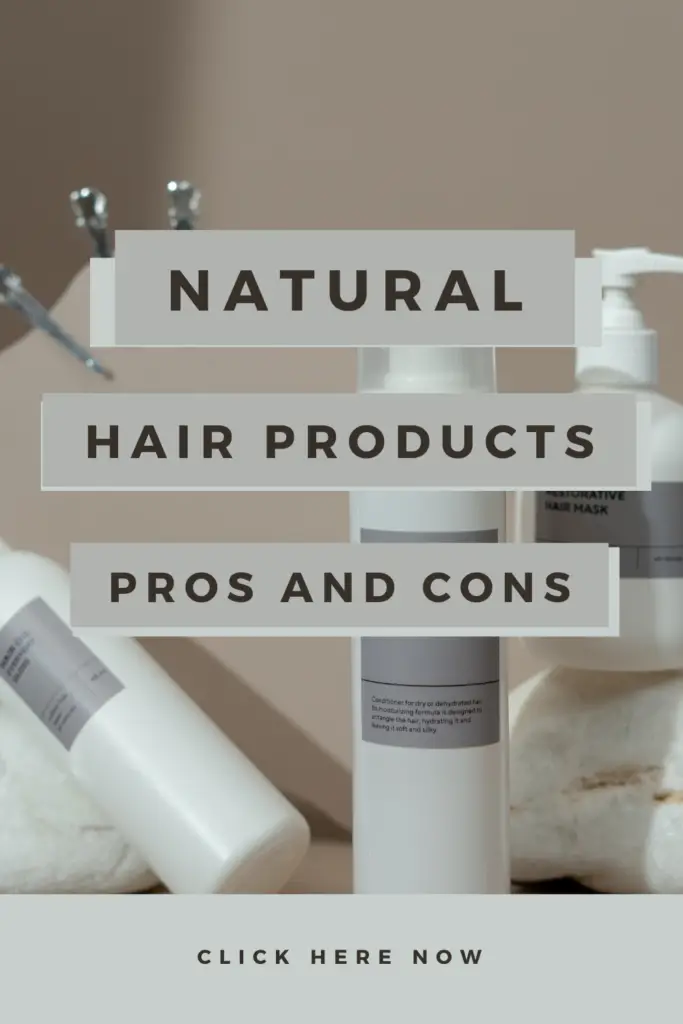
Pros of Natural Hair Products
1. Healthier Ingredients
Natural hair products are formulated with ingredients derived from plants, fruits, vegetables, and other natural sources.
These products often include beneficial oils, butters, extracts, and vitamins that nourish and moisturize hair. Some key ingredients to look for include:
- Coconut oil: Helps strengthen hair and reduce protein loss.
- Shea butter: Deeply conditions and softens hair.
- Aloe vera: Soothes the scalp and adds shine.
- Honey: Attracts moisture and seals in hydration.
Conventional products, on the other hand, often contain synthetic chemicals like sulfates, parabens, silicones, and artificial fragrances, which can dry out hair, cause buildup, and irritate the scalp over time.
2. Gentler on Hair and Scalp
The natural ingredients in these products are generally less harsh and irritating than synthetic chemicals, making them ideal for those with sensitive skin, eczema, psoriasis, or other scalp conditions.
Natural products are less likely to cause allergic reactions, dryness, or irritation. Additionally, many natural products are sulfate-free, which means they won’t strip your hair and scalp of their natural oils. Sulfate-free shampoos are particularly beneficial for color-treated hair.
3. Environmental Benefits
Choosing natural hair products can help reduce your environmental impact. These products often feature:
- Sustainably sourced and biodegradable ingredients.
- Recyclable or compostable packaging.
- Eco-friendly manufacturing processes with a smaller carbon footprint.
- Cruelty-free formulations that are not tested on animals.
4. Versatility
Natural hair products offer a wide range of styling options, especially for curly hair. With the right natural products, you can stretch, shrink, curl, and manipulate your hair in many ways. Protective styles like braids, wigs, and crochet can also be used to give your hair a break while still looking stylish.
Cons of Natural Hair Products
1. Higher Cost
Natural hair products tend to be more expensive than conventional ones due to the higher quality, ethically sourced, and often organic ingredients. The manufacturing processes are also more labor-intensive. While the initial cost may be higher, many users feel the long-term benefits to their hair and body are worth the investment.
2. Availability
These products are not as widely available as conventional ones. They are typically found in specialty stores, salons, and online rather than mainstream retailers. This can make them less convenient to purchase, especially for those who prefer to shop in person.
3. Effectiveness
While natural ingredients can be very beneficial for hair, they may not always be as effective as synthetic ingredients for achieving certain hair goals. For example, silicones provide unparalleled frizz control and shine, while parabens are highly effective preservatives. In some cases, conventional products may work better, especially for those with very stubborn hair issues.
4. Transition Period
Switching from conventional to natural products can require an adjustment period for your hair and scalp. This is because they have become accustomed to synthetic ingredients. During this transition, your hair may feel different or go through a detox period. Patience and consistency are key to seeing the full benefits.
5. Misleading Marketing
The booming natural hair care market has led to many new brands, some of which use misleading marketing tactics. Exotic-sounding ingredients may not necessarily provide significant benefits. It’s important to read ingredient lists carefully and research brands to ensure you’re getting quality, effective natural products.
Ingredients to Avoid in Hair Products
When choosing hair products, it’s best to avoid the following synthetic ingredients:
- Sulfates (sodium lauryl sulfate, sodium laureth sulfate): Strip hair and cause irritation.
- Parabens: Preservatives linked to hormone disruption and cancer.
- Silicones (dimethicone, amodimethicone): Cause buildup and prevent hair from breathing.
- Phthalates: Linked to hormone disruption and reproductive issues.
- Formaldehyde: A known carcinogen.
- Triclosan: An antibacterial agent that may disrupt thyroid function.
How to Choose Natural Hair Products
When selecting natural hair products, look for those that are:
- Free of sulfates, parabens, silicones, and other harsh chemicals.
- Made with high-quality, organic, and sustainably-sourced ingredients.
- Cruelty-free and not tested on animals.
- Packaged in recyclable or compostable materials.
- Recommended for your specific hair type and concerns.
It’s also a good idea to patch test new products on a small area of skin to check for any allergic reactions.
Conclusion
Natural hair products offer numerous benefits, including healthier ingredients, gentler formulas, and environmental sustainability.
Although they may cost more and require an adjustment period, many find the benefits to be worth it for the health of their hair and body. By carefully reading labels and choosing quality natural products suited to your hair type, you can achieve beautiful, healthy hair while supporting eco-friendly brands.
Transitioning to natural hair care may take time, but with patience and the right products, you’ll see the difference it can make.
Remember: The key to beautiful hair lies in understanding your unique hair type and needs. Consult with a hair professional if you’re unsure about the best natural products for you.
YOU MIGHT ALSO LIKE
-
Caring for Chemically Treated Hair: Tips for Healthy, Beautiful Hair
Chemically treated hair can look amazing, but it requires special care to stay healthy and strong. Whether you’ve colored, bleached, permed, or relaxed your hair, chemical processes alter…
4 min read
-
How Hydrating Treatments Revive Heat-Damaged Hair: Complete Guide to Repair and Care
Introduction Heat styling tools like flat irons, curling wands, and blow dryers can help you achieve your desired hairstyle, but they can also wreak havoc on your hair.…
4 min read
-
How Green Tea Boosts Hair Growth: Benefits and Science
Introduction Green tea has become a go-to ingredient for health-conscious individuals, and its potential to enhance hair growth is gaining recognition. Thanks to its powerful antioxidant properties and…
4 min read
-
Does Caffeine Really Promote Hair Growth?
In the ever-expanding world of hair care, caffeine has gained a reputation for its potential in promoting hair growth and reducing hair loss. While caffeine is best known…
4 min read
-
The Role of Exercise in Promoting Hair Growth
Hair growth is a complex process influenced by factors like genetics, diet, hormonal balance, and overall health. Among these, exercise stands out as a significant contributor to healthy…
4 min read
-
Chic and Simple: The Guide to 25 Styling Short Nails
Short nails are often underrated, but they offer a world of possibilities for style and care. Whether you’re a fan of minimalist designs or bold, creative looks, short…
4 min read
